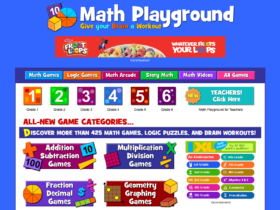Powerball, America’s favorite lottery game, entices millions with the promise of life-changing jackpots. Participants from 45 states, the District of Columbia, Puerto Rico, and the U.S. Virgin Islands dream of striking it rich overnight. But what lies behind the allure of Powerball numbers? This article delves deep into the mechanics, strategies, and odds of Powerball, offering a detailed exploration for both the curious observer and the hopeful participant.
The Mechanics of Powerball
How Powerball Works
Powerball is a multi-state lottery game where players select five numbers from a set of 69 white balls and one number (the Powerball) from a set of 26 red balls. The draw involves two machines: one for the white balls and another for the red Powerball. Matches can range from the Powerball alone, earning a small prize, to matching all five white balls and the Powerball, which secures the jackpot.
Drawing Times and Participation
Draws occur twice a week, on Wednesday and Saturday evenings. This frequency adds to the excitement and gives players two chances a week to hit the jackpot. Tickets can be purchased up to an hour before the draw in most jurisdictions, either in person at authorized retailers or online, where permitted.
The Odds of Winning Powerball
Winning Powerball, while a dream for many, is a rare occurrence. The odds of winning the jackpot are 1 in 292.2 million. These daunting odds are part of what makes the jackpots so large; as more people play without winning, the prize grows. The table below breaks down the odds of winning each prize level, illustrating the challenging yet thrilling nature of Powerball.
| Match | Odds of Winning |
|---|---|
| 5 White + Powerball | 1 in 292.2 million |
| 5 White | 1 in 11.7 million |
| 4 White + Powerball | 1 in 913,129 |
| 4 White | 1 in 36,525 |
| 3 White + Powerball | 1 in 14,494 |
| 3 White | 1 in 579 |
| 2 White + Powerball | 1 in 701 |
| 1 White + Powerball | 1 in 92 |
| Powerball Only | 1 in 38.32 |
Strategies for Selecting Powerball Numbers
While Powerball is a game of chance, and no strategy can guarantee a win, many players enjoy pondering over their number selection method. Some common strategies include:
Using Personal Dates
Many players use significant dates, such as birthdays and anniversaries, as their lottery numbers. This approach is emotionally satisfying but limits the number selection to 1-31, potentially ignoring higher numbers that could be drawn.
The Quick Pick Option
A popular choice among participants is the Quick Pick, where the lottery machine randomly selects numbers. Statistically, Quick Picks have as much chance of winning as numbers chosen by the player.
Analyzing Historical Data
Some enthusiasts analyze historical Powerball draws to identify “hot” or “cold” numbers, those that appear frequently or rarely. While intriguing, it’s important to remember that each draw is independent, and past performance does not influence future outcomes.
The Impact of Powerball on Society
Economic Contributions
Powerball generates significant revenue for state governments, which often allocate these funds to public projects, education, and charitable causes. This aspect of Powerball is a silver lining, providing benefits to the community even for those who don’t win.
Dreaming Big
The allure of Powerball lies not just in the potential financial gain but in the universal appeal of dreaming big. The lottery brings people together, ignites imaginations, and offers a break from the routine, highlighting the shared human desire for hope and change.
Conclusion
Powerball, with its simple gameplay and massive jackpots, remains a cornerstone of American culture. While the odds of winning are slim, the game provides entertainment, the opportunity for communal dreaming, and, for a select few, the chance to transform their lives radically. Understanding the nuances of Powerball numbers can enrich the experience, offering insight into the mechanics, odds, and strategies that define this beloved lottery game.
Whether you’re a seasoned player or a curious onlooker, the world of Powerball is a fascinating study in chance, strategy, and the human condition.















